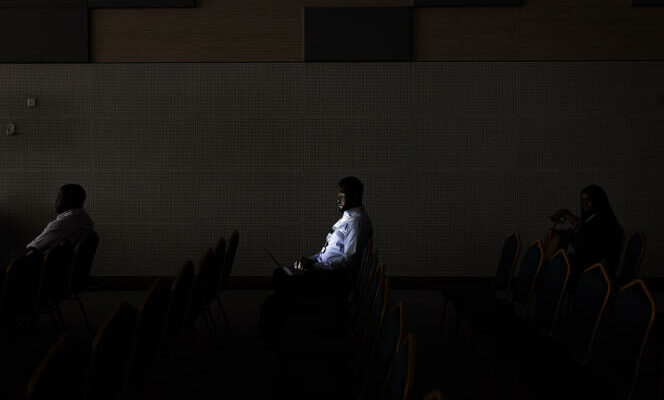In the jargon, we call it “a winter”. A period of sharp reduction in funding for start-ups. In the aisles of the Africa Tech Summit in Nairobi, on Wednesday February 14 and Thursday February 15, we worked, as in previous editions, to emphasize the “tremendous potential” of Africa in agriculture, cryptocurrencies or even artificial intelligence, to discuss the “untapped markets” and the “innovative solutions” to describe the abundant ecosystem of young shoots across the continent. But 2023 has above all been synonymous with tight budgets.
Start-ups in Africa raised $3.5 billion in 2023 (3.25 billion euros), a drop of 46% compared to 2022, according to a report published at the end of January by the Partech fund, which specifies that Latin America and Asia were also affected.
Macroeconomic turbulence (inflation, tumble of currencies against the dollar, debt fears, etc.) are the primary reason for this fall. In Africa, they have not spared the four key countries of the start-up ecosystem (South Africa, Egypt, Nigeria, Kenya). Moreover, “ in 2021 and 2022, we saw world-class investors coming to Africa. There was more capital available, more appetite for funds to see what was happening in emerging markets. Today, they returned home, to the United States or Europe »notes Andreata Muforo, partner of the Nairobian fund TLcom.
A point of view shared by Maelis Carraro, senior associate of the start-up accelerator Catalyst Fund, also based in Nairobi, who evokes a “ bubble » deflating. “ There was a lot of enthusiasm for the venture capital [capital-risque], tech. This had an effect on the deals that were made in Africa, with valuations that were very high. Today, we are seeing a recovery in these valuations. But I think the story still remains very positive,” she adds, emphasizing that funding remains significantly increasing over ten years.
Agriculture and health lagging behind
Despite an encouraging long-term trend, start-ups have felt the contraction of 2023 hard. William Luyinda co-founded EzyAgric in Uganda, which offers farmers a paid application offering them a set of tools, including weather forecasts and financing solutions. “Five years ago, we raised $1.5 million in a very short time. Today we’re looking for $1 million and that’s a lot longer. It’s exhausting », he explains in front of a stand dedicated to his project. To make his business more attractive, and survive the delicate context, he had to lay off 35 out of 50 employees. “ In Kampala, many start-ups have become zombies »he said.
You have 35% of this article left to read. The rest is reserved for subscribers.
